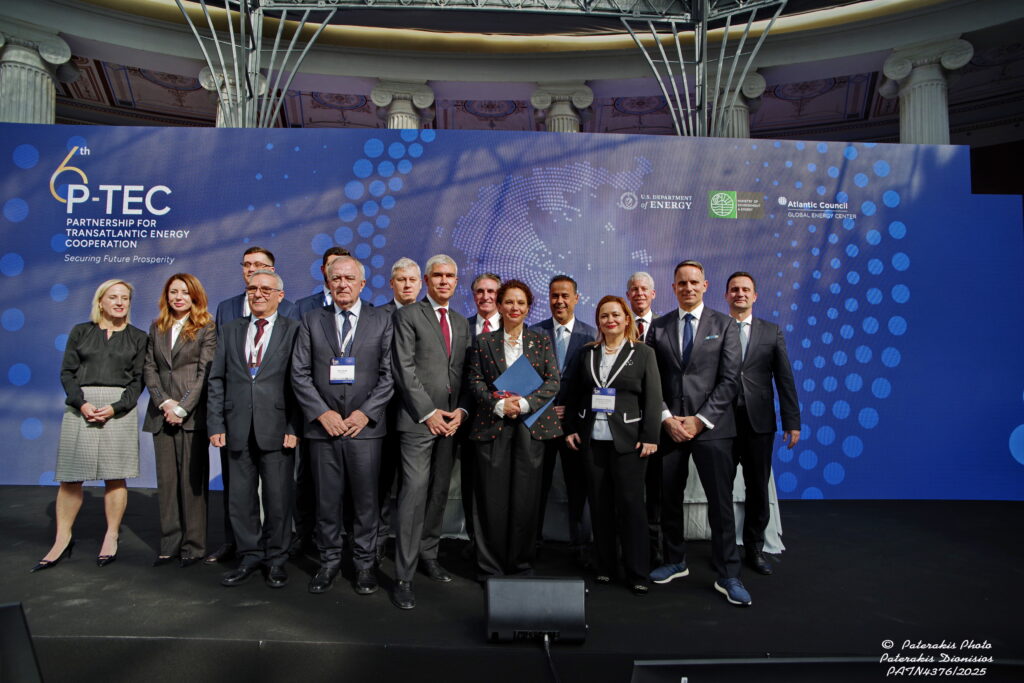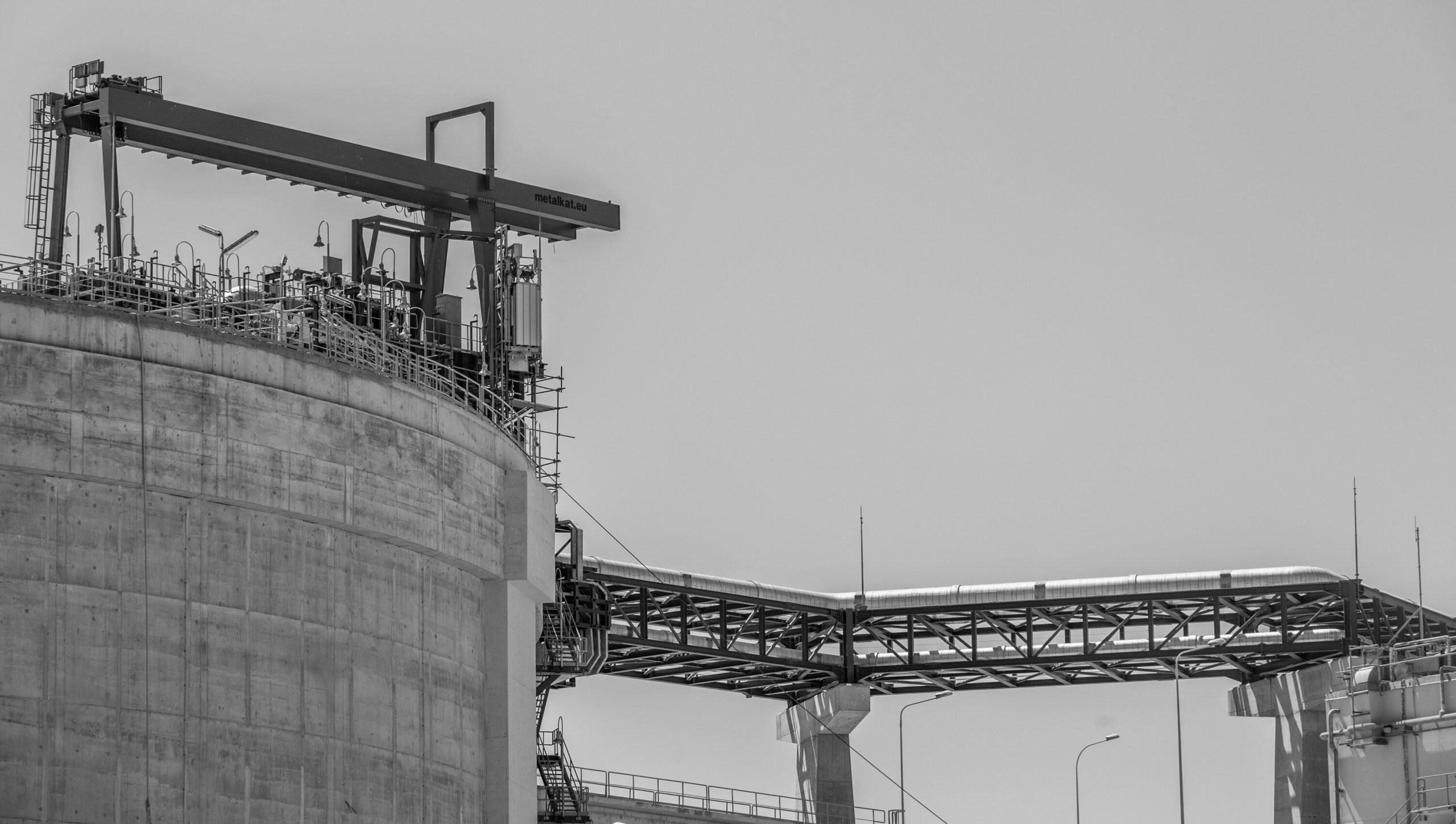The joint letter was signed in the presence of U.S. Energy Secretary, Chris Wright and U.S. Interior Secretary, Doug Burgum, within the framework of the Partnership for Transatlantic Energy Cooperation (PTEC)
The gas transmission system operators DESFA S.A. (Greece), Bulgartransgaz EAD (Bulgaria), Transgaz SA (Romania), Vestmoldtransgaz SRL (Republic of Moldova), the Gas TSO of Ukraine (Ukraine), along with ICGB AD, the independent operator of the Greece–Bulgaria Interconnector, signed a joint letter to their national energy regulators requesting approval for the launch of two new cross-border capacity products – Route 2 and Route 3. The initiative marks another important step toward strengthening Europe’s energy independence and connectivity along the Vertical Gas Corridor.
The letter was signed during the Partnership for Transatlantic Energy Cooperation (P-TEC) Ministerial Meeting, held in Athens on November 6–7, in the presence of U.S. Secretary of Energy Chris Wright, U.S. Secretary of the Interior Doug Burgum, senior U.S. government representatives, and the Ministers of Energy from Greece, Stavros Papastavrou, Bulgaria, Zhecho Stankov, the Republic of Moldova, Dorin Junghietu and Ukraine, Svitlana Grynchuk and the Deputy Prime Minister of Romania, Cătălin Predoiu.
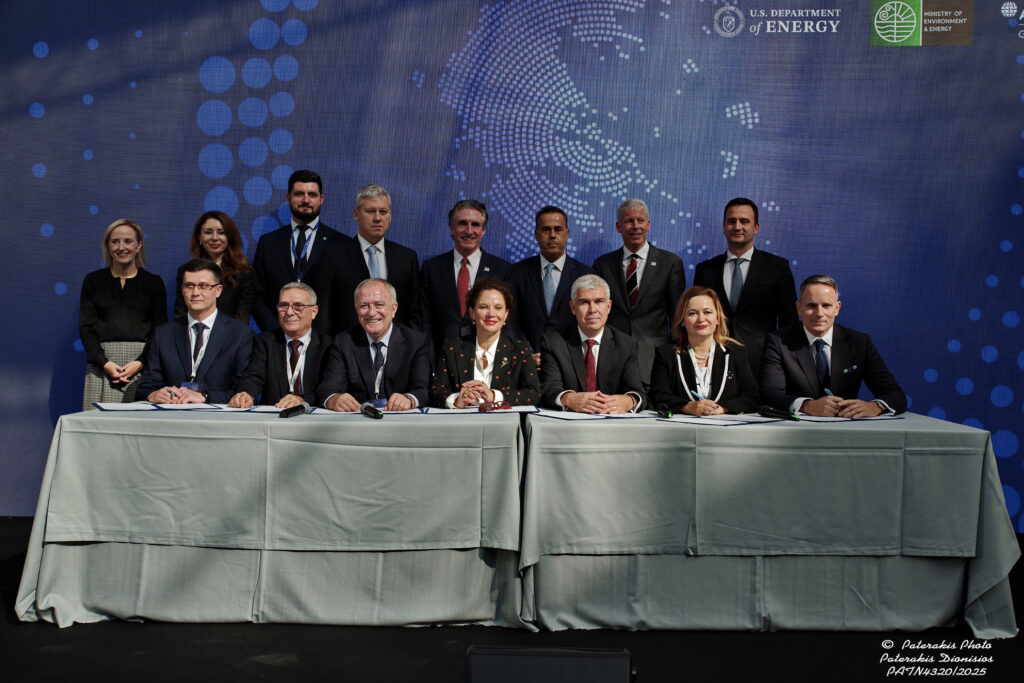
TSOs request the regulators’ approval on the availability of Routes 2 and 3 until April 2026; and the possibility of simultaneous provision of Route 1, Route 2 and Route 3 special capacity products in competing auctions. All participating TSOs have agreed to apply significant discounts – ranging from 25% to 50% across their interconnection points, to encourage market use of the new capacity and facilitate diversified gas flows. The coordinated tariff reductions and the availability of multiple route options will help mitigate potential disruptions, support uninterrupted deliveries to Ukraine, and ensure the most efficient use of existing infrastructure across the region.
The TSOs underline that as identified by the European Commission, the Trans-Balkan corridor, part of the Vertical Corridor, is a key component of the EU’s strategy to diversify gas transportation and phase out reliance on Russian gas. Approving the availability of Routes 2 and 3 is directly in line with this strategy, as it leverages LNG and Caspian gas to reinforce long-term energy security and market integration.
Route 2 originates at the Amfitriti interconnection point on the DESFA grid, crosses the Greece-Bulgaria interconnector (ICGB), and continues through the Trans-Balkan corridor, while Route 3 begins at ICGB’s interconnection point with TAP and follows the same path.
Faster approval of these additional products will significantly enhance the potential for LNG to reach Ukraine via Greek terminals, strengthening energy security and enabling traders to select the optimal supply routes based on their needs.
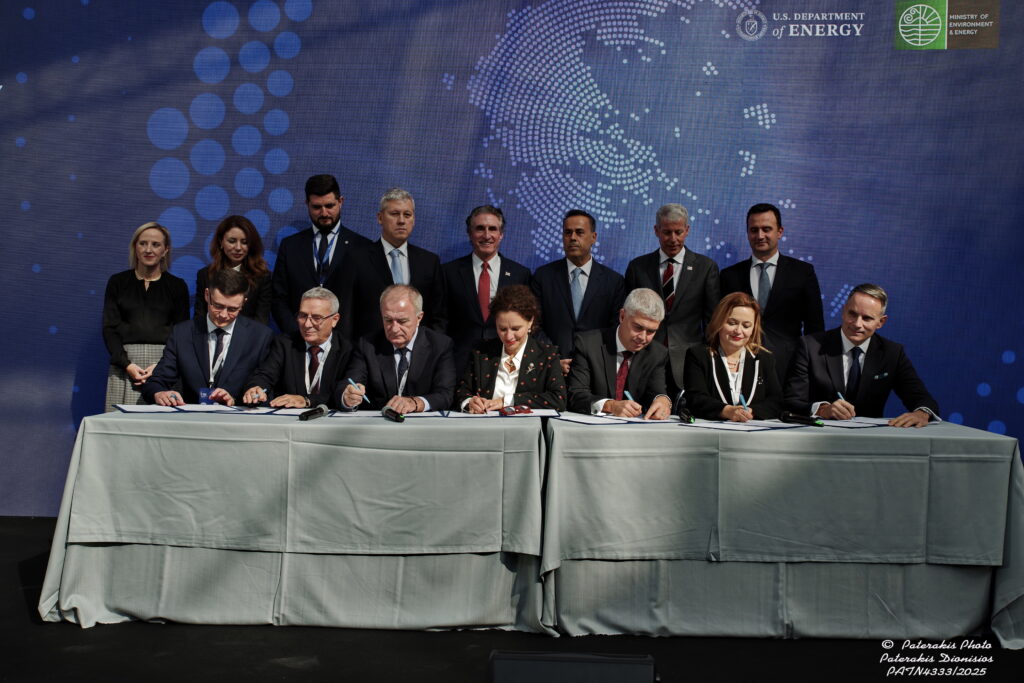
Quote by DESFA CEO Maria Rita Galli: “Today’s initiative marks another important and concrete step toward strengthening energy security and regional cooperation across Southeast and Central Europe. By advancing Route 2 and Route 3, we are unlocking the full potential of Greece’s LNG infrastructure — encompassing both the Revithoussa terminal and the Alexandroupolis FSRU — and further consolidating Greece’s position as a key entry point for diversified gas supplies into Europe.
Through DESFA and the Vertical Corridor, Greece enables flexible South-to-North gas flows and ensures reliable access to diversified energy resources for the wider region, including Ukraine. The close collaboration among the participating TSOs reflects our shared commitment to a more resilient, interconnected, and competitive European energy market — one that serves citizens, supports economies, and promotes long-term regional stability.”
Quote by ICGB Executive Officers Teodora Georgieva and George Satlas: “The Greece-Bulgaria pipeline is at the very heart of these new routes, providing new flexible opportunities that can change the market. Through Routes 2 and 3, ICGB stands firmly alongside our partner TSOs in driving even stronger energy connectivity from South to North. Our joint efforts are a tangible step toward greater energy independence for Europe, enabling diversified, reliable and competitive access to gas from LNG and Caspian sources.”
Quote by Bulgartransgaz Executive Director, Vladimir Malinov:“ The Bulgarian gas transmission operator will continue to work together with its counterparts to further develop and ensure the long-term implementation of route products for the transmission of natural gas from reliable sources, such as the United States, to Ukraine. Developed in a spirit of solidarity with the Ukrainian people, the three routes represent a tangible and already operational measure to enhance energy security and guarantee affordable energy supplies at competitive prices for the countries of Southeast Europe. At the same time, Routes 1, 2 and 3 will provide the much-needed opportunity of the infrastructure to ensure access to reliable natural gas supplies following the complete ban on Russian natural gas.”
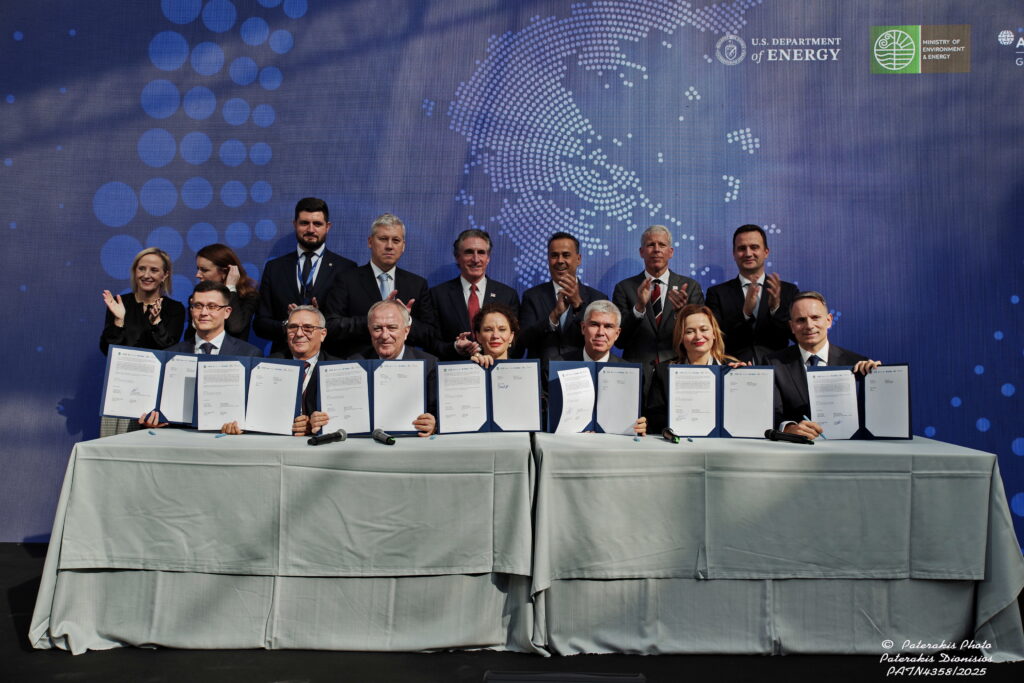
Quote by Transgaz General Director, Ion Sterian: “Romania, through Transgaz, initiated, promoted, and supported the Vertical Corridor concept since 2016, with the first Memorandum of Understanding being signed in Bucharest in July 2017. The Vertical Corridor and the Trans-Balkan Corridor, which is a part of it, are essential pillars of energy security directly contributing to the diversification of supply sources and routes, the overall reduction of the dependence on Russian gas, and the strengthening of the energy resilience of the Republic of Moldova and Ukraine and of the entire Central and Eastern Europe and the Balkans.
The signing, on the sidelines of the 6th Partnership for Transatlantic Energy Cooperation (PTEC) Ministerial Meeting held in Athens, of the joint letter addressed by the TSOs of Romania, Greece, Bulgaria, the Republic of Moldova, Ukraine and the independent operator of the Greece-Bulgaria Interconnector to the National Regulatory Authorities of the relevant countries in order to request the approval for the provision of the Route 2 and Route 3 special capacity products until April 2026, included, represents a firm endeavour the Trans-Balkan Corridor TSOs make in order to secure gas to Ukraine over this period.
These routes will facilitate the transport of natural gas from Greece to Ukraine from diversified sources (LNG and gas from the Caspian Sea) via the Trans-Balkan section of the Vertical Gas Corridor.
The implementation of the Vertical Corridor will increase the capacity at IP Negru Voda-Kardam from 5.03 bcm/year to 9.41 bcm/year, facilitating the take-over of the American LNG produced by American companies (Exxon, Cheniere, Chevron, etc.), including from the existing LNG terminals in Greece (Revithoussa, Alexandroupolis) as well as from other terminals in planning phase (e.g. Dioriga).
Romania, by Transgaz, is ready to take over additional gas volumes through the pipelines of the Trans-Balkan Corridor (T1, T2 and T3 pipelines) to cover the regional gas needs as Transgaz completed the reverse flow works to the gas metering stations on T2 and T3 pipelines as well.”
Quote by Gas TSO of Ukraine, General Director, Vladyslav Medvediev: “The new supply routes provide for additional commercial opportunities for traders to transport gas from alternative sources to Ukraine at attractive tariffs, thus strengthening the position of our system as that of a reliable partner in the European market.”
Quote by U.S. Secretary of Energy Chris Wright: “The most effective way for the West to weaken Russia’s war machine is through energy,” U.S. Secretary of Energy Chris Wright said. “The United States applauds Greece, Bulgaria, Romania, Moldova, and Ukraine for taking steps to strengthen their energy security. Thanks to President Trump’s commitment to energy dominance, the United States is ready and able to supply affordable, reliable and secure American LNG to our allies in Europe.”
